SUMMARY
This is AI generated summarization, which may have errors. For context, always refer to the full article.
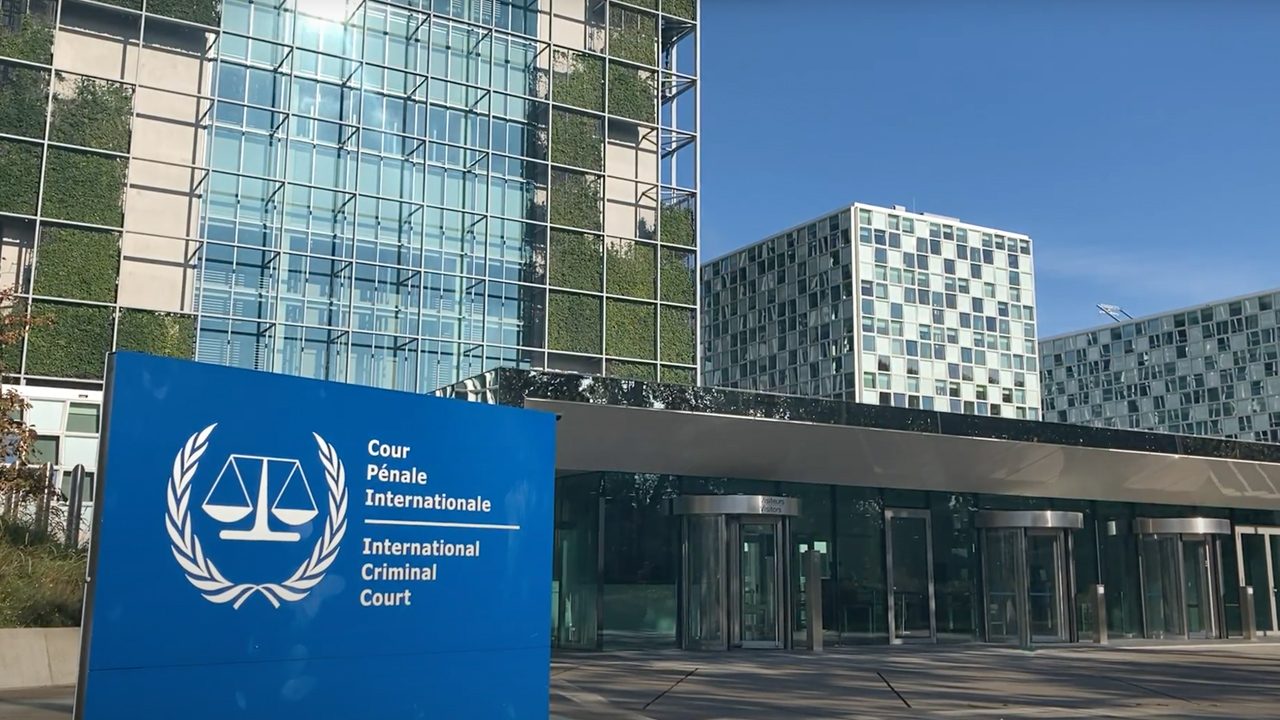
MANILA, Philippines – The administration of President Ferdinand Marcos Jr. has further distanced itself from the International Criminal Court (ICC), as it rejected democratic leaders’ acknowledgement of the tribunal’s “important” role.
While the Philippine government endorses Summit for Democracy Declaration as “testament to [its] unwavering commitment to upholding our democratic values and principles,” it “disassociates” itself from parts that referenced the court where Rodrigo Duterte’s violent war on drugs is currently being investigated.
“The PH government does not recognize the ICC’s jurisdiction and affirms that the PH has the jurisdiction to investigate and prosecute crimes, including those allegedly committed in the context of the country’s anti-illegal drugs campaign,” the Department of Foreign Affairs (DFA) said in a statement on Wednesday, March 29.
The declaration was endorsed by at least 73 countries and was released as part of the Summit for Democracy, a gathering of democratic leaders organized by Costa Rica, the Netherlands, Republic of Korea, and Zambia.
The summit, taking place March 29 to 30, gathers world leaders and civil society organizations for virtual and in-person events in several locations, including those in host countries.
In the declaration, the leaders “acknowledge the important role played by the ICC as a permanent and impartial tribunal complementary to national jurisdictions in advancing accountability for the most serious crimes under international law.”
The Philippines, however, insists that the court “failed” the test of complementarity and that the criminal justice in the country is functioning – a line that has been repeatedly echoed as the ICC moves forward with proceedings on Duterte’s drug war which killed at least 6,252 killed in police operations alone. Including vigilante-style killings, human rights groups estimate the number of victims between 27,000 and 30,000.
The ICC appeals chamber on March 27 junked the Philippine government’s bid to suspend Prosecutor Karim Khan’s ongoing investigation into the drug war killings while the appeal process is ongoing. It also allowed victims’ families to comment on the government’s appeal, pointing out that it is “appropriate for victims to be involved” in the proceedings.
Marcos on Tuesday, March 28, said that the Philippine government is “disengaging from any contact, from any communication” with the court following its latest decision. Solicitor General Menardo Guevarra, however, clarified that they are not withdrawing the main appeal as the country is “not going to lose anything further by waiting for its resolution.”
PH gov’t’s ‘duplicity and rhetoric’
The DFA, in rejecting the ICC references in the summit’s declaration, insisted that the Philippines “upholds its commitment to fight impunity for atrocity crimes” even if it already withdrew from the Rome Statute, the founding document of the ICC.
“The Philippines likewise reiterates its view that human rights-related dialogues and platforms must not be politicized and targeted against specific countries and instead be constructive, inclusive, and directed at delivering meaningful, long-lasting solutions,” it added.
In a video message played during the national statements of participating countries, Marcos said that his administration’s commitment to fighting impunity is “solid and unwavering.”
But there is still no significant development on the quest of justice for the violations, almost a year into the Marcos administration, or almost seven years since Duterte’s drug war began. Out of the thousands killed, only three had been convicted so far in relation to the drug war, including policemen involved in the killing of 17-year-old Kian delos Santos and the deaths of Carl Angelo Arnaiz and Reynaldo “Kulot” de Guzman.
Human Rights Watch (HRW) on Thursday, March 30, slammed the Philippines’ double talk. In a statement, HRW Asia director Elaine Pearson said that the international community should not be fooled by the government’s “duplicity and rhetoric.”
“It cannot say it upholds those values but at the same time reject, ridicule and threaten accountability mechanisms like the ICC,” she said.
“The Marcos administration’s avowed commitments to protect human rights and fight impunity will be shown by whether it cooperates with the ICC’s investigation,” Pearson added. – Rappler.com
Add a comment
How does this make you feel?
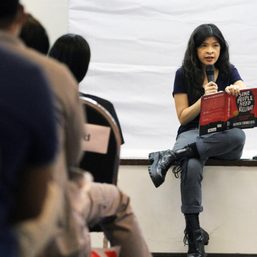

![[OPINION] ‘Some people need killing’](https://www.rappler.com/tachyon/2024/04/tl-some-people-need-killing-04172024.jpg?resize=257%2C257&crop_strategy=attention)



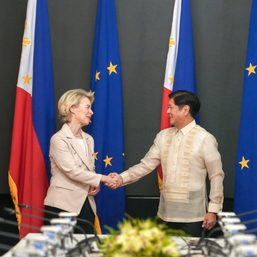
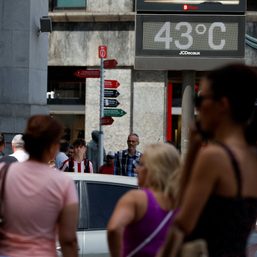
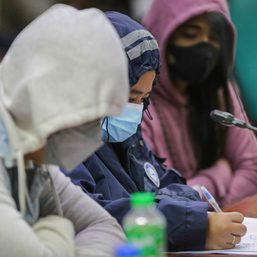
![[The Slingshot] Alden Delvo’s birthday](https://www.rappler.com/tachyon/2024/04/tl-alden-delvo-birthday.jpg?resize=257%2C257&crop=263px%2C0px%2C720px%2C720px)

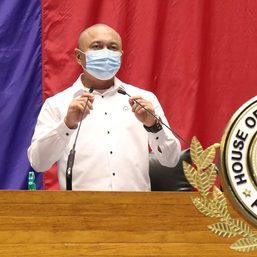
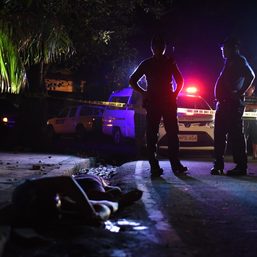
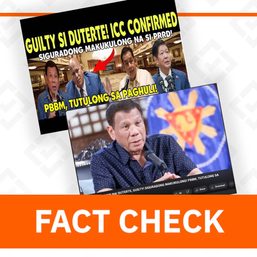
![[In This Economy] Is the Philippines quietly getting richer?](https://www.rappler.com/tachyon/2024/04/20240426-Philippines-quietly-getting-richer.jpg?resize=257%2C257&crop=194px%2C0px%2C720px%2C720px)
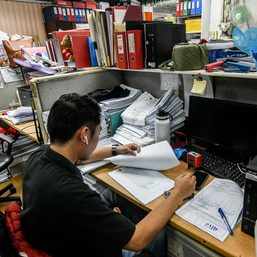
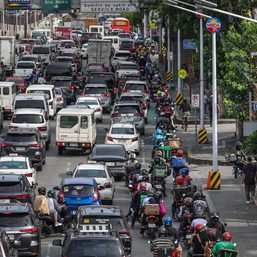
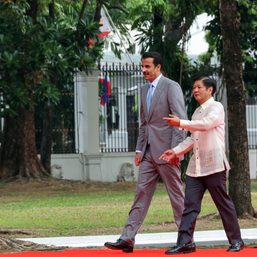
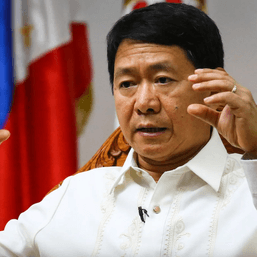

![[Rappler’s Best] Patricia Evangelista](https://www.rappler.com/tachyon/2024/04/unnamed-9-1.jpg?resize=257%2C257&crop=486px%2C0px%2C1333px%2C1333px)
There are no comments yet. Add your comment to start the conversation.